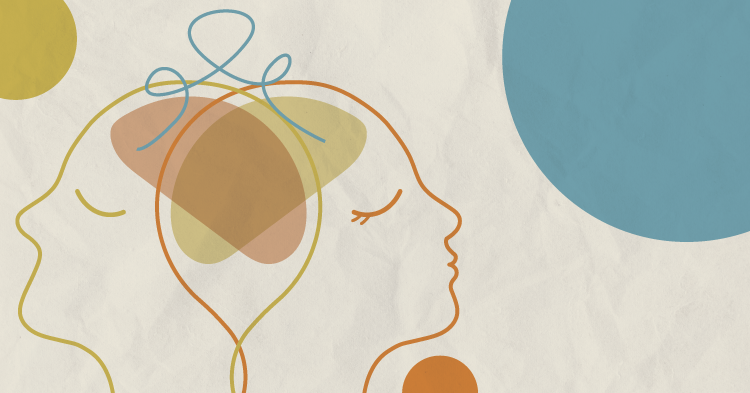Empathy: Turning the Forgotten into the Benchmark

Originally published in TEACH Magazine, July/August 2018 Issue
By Bill Morris
“I need to know, Brian. Are you going to hurt yourself over Christmas break?”
Over the course of my teaching career I’ve asked that question to students more times than I care to admit. They usually balk, choke, or whisper, “I don’t know, sir.” Sometimes, a student will speak clearly, “Yes.” Both answers spark a myriad of interventions too detailed for the scope of this writing.
This is my teaching reality. I work with “disadvantaged” high school students. I always have and probably always will. My students, fellow teachers, and I; we work in seclusion on the other side of the road away from the early college campus, neatly partitioned from the world.
We are largely forgotten by the establishment, save for once a year when test scores and graduation rates are published. Then the whispers at staff development days begin. “What do you guys do over there? Your numbers are really good.”
There are two things that bother me about that question. One, it clearly demonstrates the outsider’s opinion of my students. Most people, including fellow educators and society at large, tend to assume that my students are capable of less-than-stellar academic performances because they have complicated lives outside school. My students are caring for dying relatives, in drug rehabilitation programs, on parole or probation, married, have social or psychological disabilities, and work full-time jobs to support their families.
Second, the question assumes that my students are the only ones in the school with these obstacles prohibiting them from attaining an education. The truth is, they are the lucky few that have been identified by the educational system as being eligible for the program I teach. I promise you, there is a child in your class right now who is experiencing a complicated hardship unique to them. That kid needs more than a history lesson.
So, here’s the secret to turning the forgotten into the benchmark: empathy. Honestly, that is what my team of eight educators work on day in and day out. It takes all eight of us. I do not teach United States History. Along with my team, I teach respect, compassion, community responsibility, humour, and social awareness through a series of lesson plans.
Having empathy for my students means that I have to truly get to know them. I make it a point. On the first day of school, I ask my students to write about their hardest day and their best day. I ask them what they want to do after graduation, and how they plan to achieve that goal the day after they walk across the graduation stage with a high school diploma in hand.
I have entire days where I don’t teach at all. Instead, I listen and help my students plan for tomorrow. I make success inevitable in my classroom. I purposely refrain from saying “if” in my room in favour of “when…”
Empathy also means removing barriers that inhibit learning. Once I really started listening to my students, I started to understand the depth of the difficulties they experience daily. Resources are always in short supply. I never have enough working laptops, iPads don’t exist here, and I won’t give students rides to and from their personal appointments.
My students understand that if success is inevitable, then obstacles to success are constant and largely a state of mind. Providing answers rarely helps a student achieve sustainable success, so we brainstorm about, anticipate, and plan for life obstacles as a class. My classes are teams. “When one of us succeeds, we all succeed.” This mantra is constant along with putting community first before the self.
I emphasize positive reinforcement to celebrate even the smallest of student successes. We laugh, play, and have pull-up contests, ice-cream sandwich days, pizza days, popsicle afternoons, and lunchtime sports. Passed your driver’s license test? Here’s a taco.
I’ve learned that my students have an extremely low tolerance for disciplinary actions. If I take away a cell phone, I will not see that student ever again. He or she has a full life to deal with and school is just another place to be disciplined. Sometimes, it’s necessary to discipline a student, but rarely.
My students don’t fight with one another. They are articulate and honest most of the time. My students come to school of their own accord because here they feel safe, loved, and like kids again. Therein lays the secret to my success—and yours.
My students perform above the state average on standardized tests and graduate from high school because they know the following: a team of eight adults expect them to be successful, care about their well-being, and listen when they are hurting. My co-teachers and I are not our students’ friends. The boundaries are clear and our standards are uncompromising, but empathy is our ethos.
Brian, if you’re wondering, didn’t meet the requirements to graduate this year. But Brian is still alive and comes to school every day. While he will not walk across the graduation stage in 2018, he did tell me to write this paper, because “I would’ve killed myself if my teachers didn’t notice I was hurting, and you guys were the first teachers that did.” Brian will be back next school year to plan for life the day after graduation.
He promised.
*Student names have been changed.
Bill Morris is a former police officer turned teacher of kids he used to arrest. He has a BA in Law and Society from Penn State. He’s currently pursuing his MEd in Educational Leadership. He lives and works in the Rio Grande Valley of Texas as the social studies teacher for Edcouch-Elsa ISD-Academy.
